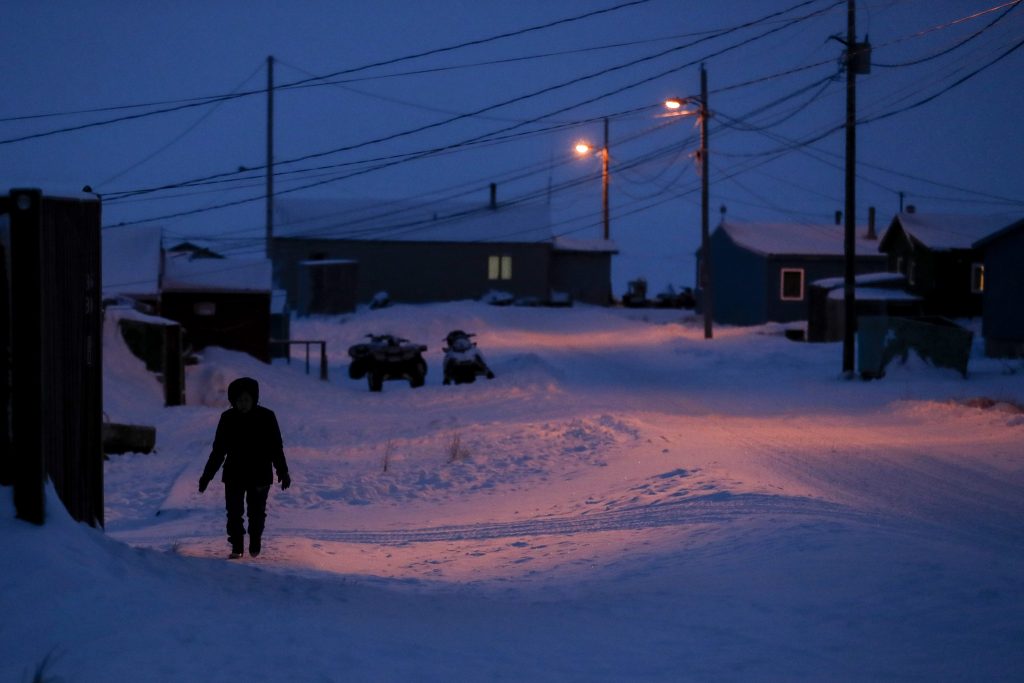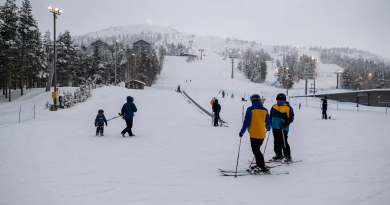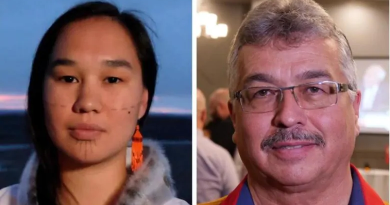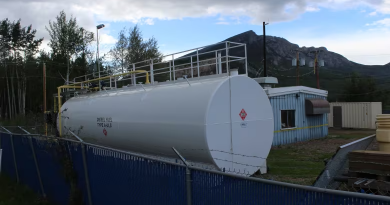Senators, including Alaska’s, sound alarm on cuts impacting Indigenous health care agency

Alaska Senator Lisa Murkowski (R-Alaska) is among a bipartisan group of senators is demanding that the federal government stop staffing cuts and hiring freezes they say are putting health care at risk for Indigenous Americans.
In a letter to Health and Human Services Secretary Robert F. Kennedy, Jr., Murkowski, along with Brian Schatz (D-Hawaii), and Jeff Merkley (D-Ore.) warned in a letter this week that the Indian Health Service (IHS) is struggling to deliver care due to a shortage of staff across the board—from doctors and nurses to lab techs and administrators.
“You must know that the IHS service population is among the most vulnerable in our nation, falling behind in nearly every health metric,” the letter said.
“We urge you to take immediate action to ensure that the IHS programs serving Native communities have the resources and staffing necessary to fulfill their missions and halt any further actions affecting Tribal health care delivery without first engaging in meaningful Tribal consultation.”
The IHS serves about 2.8 million American Indians and Alaska Natives.
Its facilities, mostly located in rural and remote areas, are often the only source of medical care for Tribal communities. But lawmakers say decades of underfunding and staffing shortages have left many clinics unable to meet basic standards—putting federal accreditation and access to Medicare and Medicaid funding in jeopardy.
U.S President Donald Trump campaigned on reducing the size of the federal government.
His administration has already embarked on cutting departments and reducing the number of workers in areas it considers redundant. While the Indian Health Service (IHS) itself has been exempted, the senators argue that the agency is still being impacted due to changes elsewhere that the IHS relies on to provide services to its communities.

Communities in rural Alaska already struggle to attract and retain health care workers, and some U.S. Senators say recent cuts to the federal government could exacerbate problems for remote Indigenous communities.
(AP Photo/Gregory Bull)
According to the lawmakers, recent federal decisions—including a hiring freeze and staff buyouts—have hit not only frontline medical staff but also behind-the-scenes roles like billing and scheduling. Cuts to civilian support at the U.S. Public Health Service have also disrupted logistics for over 1,200 officers working in IHS and Tribal facilities, the say.
“IHS cannot deliver quality health care without sufficient personnel – not just physicians, nurses, dentists, and mental health professionals, but also laboratory technicians who perform tests and process and collect specimens, and administrative personnel who perform essential tasks, including billing, appointment scheduling, and ensuring IHS facilities maintain their accreditation,” the letter said.
The senators said Native communities already face serious health challenges, including high rates of diabetes, liver disease, suicide, and other life-threatening conditions. They noted that life expectancy in many Native areas is comparable to the U.S. average in 1944.
The group also criticized HHS for failing to consult with Tribal leaders on recent changes, including moving staff into IHS roles in various states without local input. The senators called on the agency to halt any new personnel moves that affect Tribal health services until proper consultation with Native leaders takes place.
“Meaningful Tribal consultation should be at the forefront of any discussions regarding potential changes at HHS, including the IHS,” the letter said.
“This foundational tenet of the federal government’s trust relationship empowers Tribes to be a part of policymaking on a government-to-government basis.”
Comments, tips or story ideas? Contact Eilís at eilis.quinn(at)cbc.ca
Related stories from around the North:
Canada: Locums aren’t the only ones who need incentives, says N.W.T. doctor, Eye on the Arctic
Greenland: Greenland to reduce services amidst staffing shortages in health care system, Eye on the Arctic



